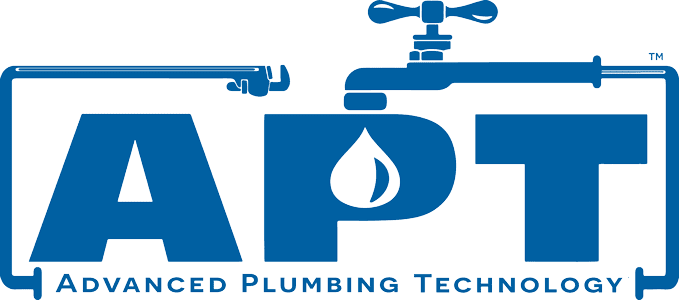The Benefits of Water Softening: Improving Water Quality with Plumbing
June 18th, 2023Posted by Brian Shoemaker
At Advanced Plumbing Technology, we understand the significance of water quality for your home or business. As an essential resource, water plays a pivotal role in various aspects of our lives. From drinking and cooking to cleaning and bathing, the quality of water can profoundly impact our health, comfort, and even the longevity of our plumbing systems. This comprehensive guide will delve into the benefits of water softening and how it can significantly improve water quality, enhance plumbing efficiency, and contribute to a healthier and more comfortable living environment.
Understanding Water Hardness
Before we dive into the advantages of water softening, let’s first grasp the concept of water hardness. Water hardness refers to the mineral content in water, primarily the presence of calcium and magnesium ions. These minerals are naturally present in water sources and can lead to a range of issues, such as scale buildup in pipes, faucets, and appliances, as well as reduced lathering of soap and detergents. The degree of water hardness is often measured in grains per gallon (GPG) or milligrams per liter (mg/L).
The Effects of Hard Water on Plumbing Systems
Hard water may appear harmless at first, but its effects on plumbing systems can become apparent over time. The accumulation of mineral deposits, commonly known as limescale, can lead to clogged pipes and reduced water flow. This affects the efficiency of plumbing fixtures and can lead to increased energy consumption due to the reduced heat transfer efficiency of water heaters and boilers. Furthermore, limescale buildup can lead to the premature failure of appliances like dishwashers, washing machines, and water heaters.
The Benefits of Water Softening
Water softening removes excess calcium and magnesium ions from water and replaces them with sodium ions through an ion exchange process. This transformation has numerous benefits for both your plumbing system and your daily life:
- Reduced Scale Buildup: By removing the minerals responsible for limescale buildup, water softening significantly reduces the chances of clogs in pipes and appliances. This, in turn, prolongs the lifespan of your plumbing system and appliances, saving you money on repairs and replacements.
- Improved Appliance Efficiency: Water-using appliances such as washing machines, dishwashers, and water heaters operate more efficiently with softened water. Without the hindrance of limescale, these appliances can heat water more effectively and operate with less energy consumption, leading to lower utility bills.
- Enhanced Cleaning: Softened water’s improved lathering capabilities allow you to use less soap and detergent for cleaning. This saves you money and leaves your dishes, clothes, and surfaces cleaner and residue-free.
- Healthier Skin and Hair: Hard water can leave mineral deposits on your skin and hair, leading to dryness and irritation. Softened water, however, allows your skin and hair to retain their natural moisture, leading to a healthier and more vibrant appearance.
- Brighter, Softer Laundry: Softened water prevents minerals from binding to fabric fibers, resulting in softer and brighter laundry. Clothes maintain their color and texture for a longer period, reducing the need for frequent replacements.
- Eco-Friendly Choice: Using softened water can contribute to a greener lifestyle. With appliances operating efficiently and less detergent needed, you’ll reduce your environmental footprint by conserving water and energy.
The Water Softening Process
Now that we’ve explored the benefits of water softening, let’s delve into the water softening process itself:
- Ion Exchange: Water softeners use a resin bed to perform ion exchange. As hard water passes through the resin, calcium and magnesium ions are swapped for sodium ions, softening the water.
- Regeneration: The resin bed becomes saturated with calcium and magnesium ions over time. The water softener initiates a regeneration cycle, during which a brine solution is used to flush out the accumulated minerals and recharge the resin.
- Backwash and Rinse: After regeneration, the resin bed is backwashed to remove any remaining brine and loosened mineral particles. A rinse cycle follows to ensure the removal of any residual brine before the softener resumes normal operation.
Choosing the Right Water Softener
Selecting the right water softener for your home or business requires careful consideration of factors such as water hardness, water usage, and available space. Advanced Plumbing Technology offers a range of water softening solutions tailored to meet your specific needs. Our expert technicians can assess your water quality and provide recommendations to ensure you get the most effective and efficient water-softening system.
Installation and Maintenance
Once you’ve chosen the appropriate water softener, our team of experienced professionals will handle the installation process seamlessly. We prioritize the correct setup and configuration of the system to ensure optimal performance. Additionally, we offer regular maintenance services to keep your water softener operating at its best. Routine maintenance involves resin bed checks, brine tank inspections, and overall system evaluations to detect and address any potential issues before they escalate.
Conclusion
In a world where water quality plays a vital role in our daily lives, investing in water-softening technology proves to be a wise decision. From extending the lifespan of your plumbing system and appliances to enjoying softer skin, cleaner laundry, and more efficient appliances, the benefits of water softening are far-reaching. At Advanced Plumbing Technology, we are committed to helping you achieve the highest water quality standards for your home or business. Contact us today to explore our water-softening solutions and experience the transformative effects firsthand.
